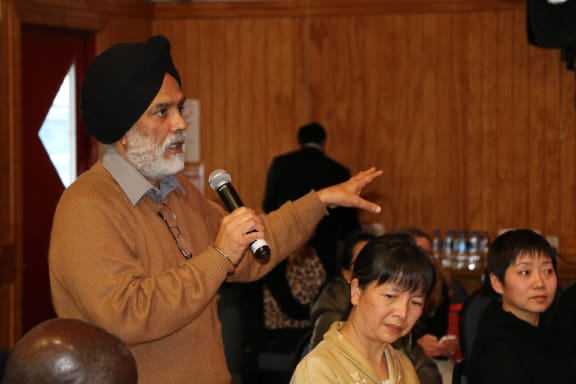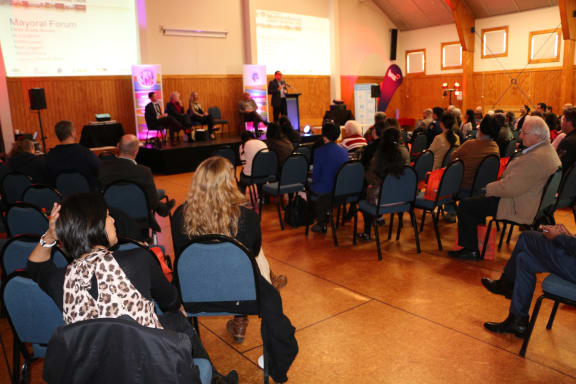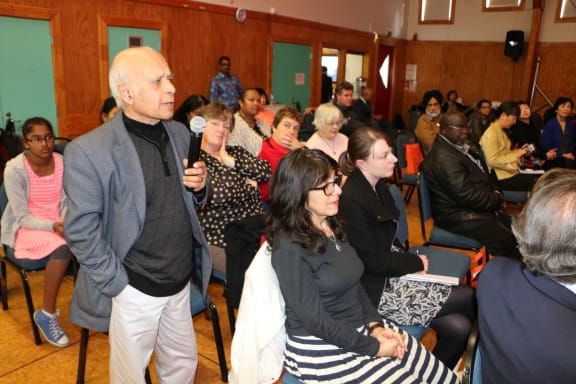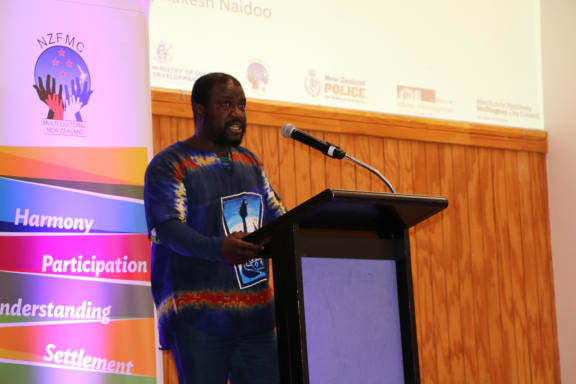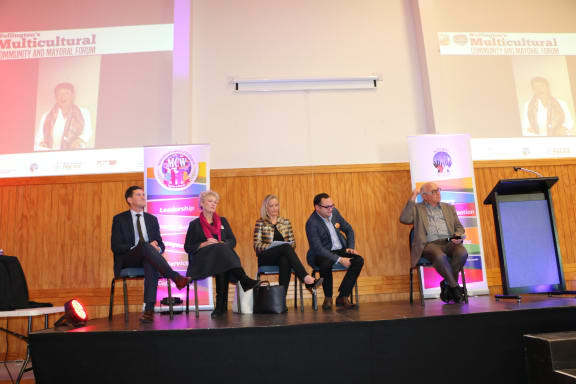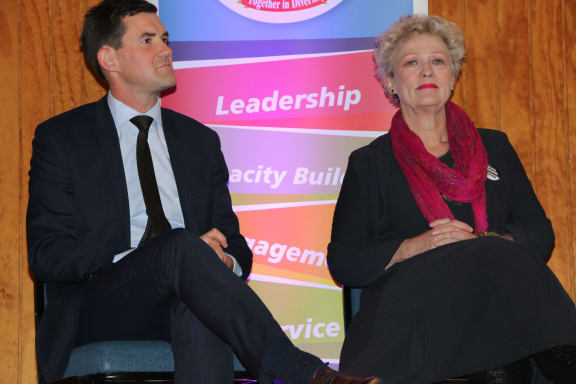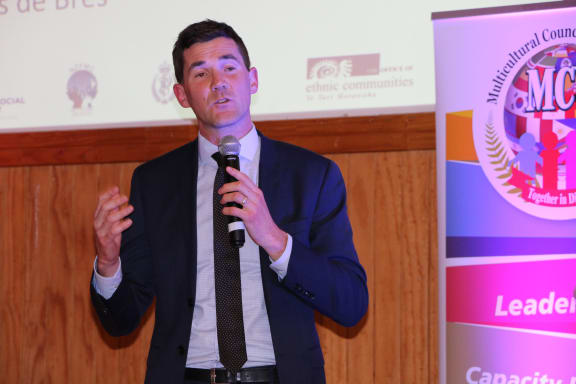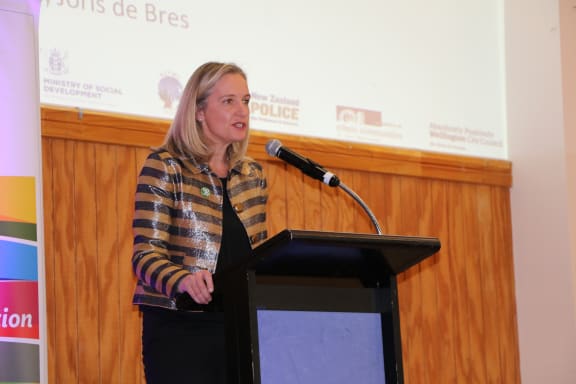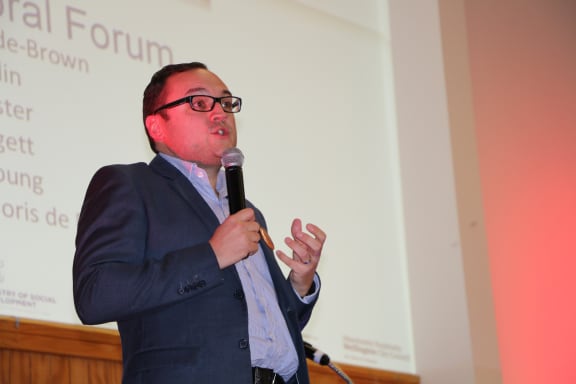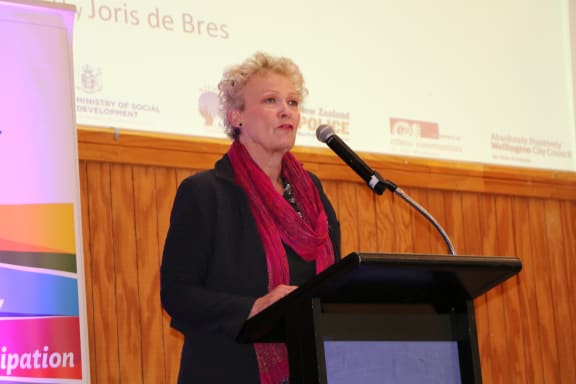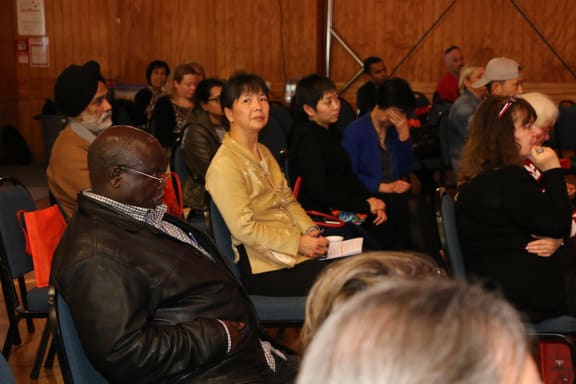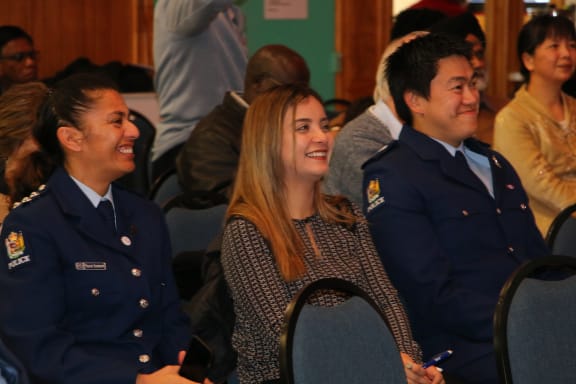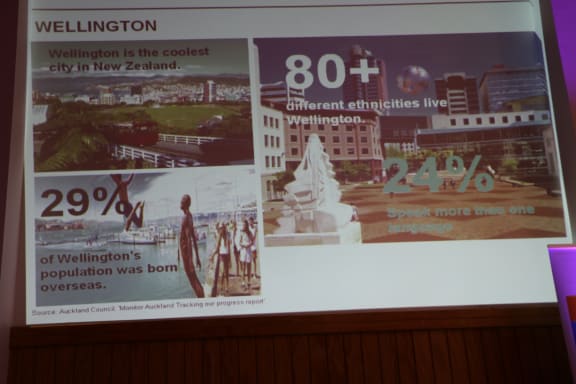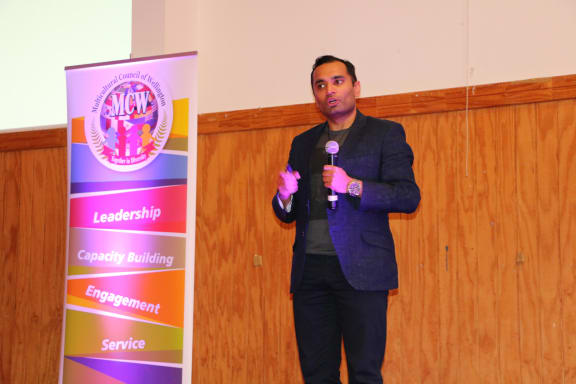A Sikh man stands and directly challenges the mayoral candidates. The resounding beat of Taiko drums fills the Johnsonville Community Centre in Wellington as the Multicultural Community welcome four of the eight mayoral candidates to their forum. The audience have many questions. The drumming echoes their sense of urgency. Does local government reflect the communities it serves?
"The taxi industry is run by new migrants. Many new arrivals are highly skilled, but with no real employment opportunities. How would you help the migrants?"
It's a chance for the audience to evaluate how much their mayoral candidates understand about their Capital's multicultural population and what their aspirations are for the many new migrants living there.
Challenging gate keepers
One of the speakers at the forum is Nigerian born, New Zealand citizen Tayo Agunlejika. He's sick of the same old issues affecting ethnic communities reoccur in a perennial fashion, issues like lack of representation in local governance, or the perceptions of a lack of equal opportunity in employment, especially for highly skilled migrants.
"It seems some of the plights of ethnic communities are not clearly understood. One example; lack of senior leadership roles within public service or issues around support for international students."
Tayo would know, he's the Executive Director of Multicultural New Zealand (New Zealand Federation of Multicultural Councils), an umbrella organsation that has around 20 regional councils around the country and prior to heading the management position; he was the National President, providing leadership, vision, strategic thinking and direction for the National Board, Regional Boards, Managements, Community Organisations and members.
"For us to be represented, for the voices of grass-roots ethnic communities - how do we remove those barriers? The gate keepers; at government agencies perspective, the policy makers. But also people [leaders] who are still in the same position in the community but past their used-by-date, are not willing to work with the communities."
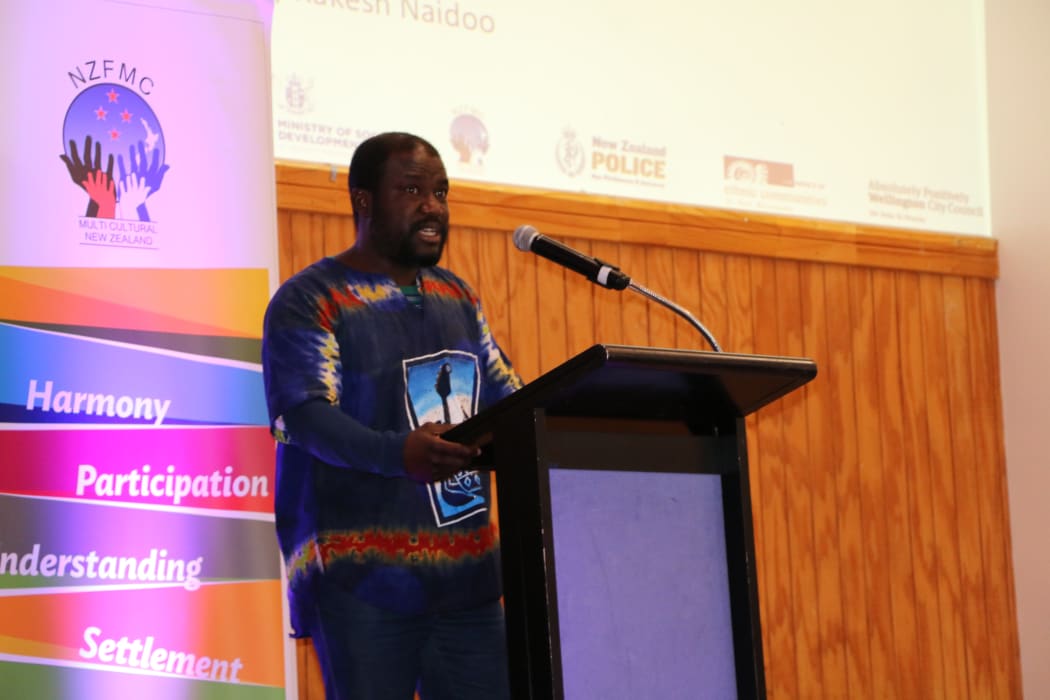
Tayo Agunlejika takes on gate keepers Photo: RNZ / Lynda Chanwai-Earle
So how did mayoral candidates respond?
With Celia Wade-Brown choosing not to stand again, deputy Mayor of Wellington Justin Lester responds to the challenge about representation at local government and council level:
"An advisory board on council would give a direct flavour of ethnic communities thinking into councils decision making processes too - it could happen immediately."
Regarding employment issues for highly skilled new migrants Justin says he's seen it first hand; "For ethnic communities it's issues around language, culture, local experience, getting that first job in New Zealand. Once you've got that first job, you're okay. So employment pathway programmes within the council for example. Internships which encourages role models and encourages other ethnic individuals to come through organisations. To promote their interests rather than creating those glass ceilings that might already exist."
Candidate Jo Coughlan encourages "any and all of the audience" to stand for local governance, to have more diversity around the council table. "I think its important to work with government in this space, its outrageous that there are so many highly qualified migrants around the country who are not able to utilise their skills and talents to the best of their abilities. So if we can help as a council with some sort of programmes to make those employment opportunities available, or helping through those employment process, then I'd be very willing to be engaged to do that.
Rahul Watson Govindan was also presenting at the forum. Representing Strategy Development, New Zealand Trade and Enterprise, Rahul challenges the candidates to consider how best can they unlock our potential and take advantage of our growing ethnic diversity.
"Are we happy with our current situation? What actions have been taken over the years to get us to a better state? There's a vision that they need to cast of that diverse, multi-ethnic future, that lies within unleashing our potential as a small capital city at the bottom of the world - taking on the world and winning. If the mayoral candidates can articulate that - I think they've got a winning formula."
Candidate Nick Leggett believes it's an equity question:"When you are connected and get to know people, barriers break down and opportunities come up. Wellington is really big in tertiary education and the council has a role to ensure that those institutions are delivering courses and up-skilling. Many migrants come highly qualified, but in some cases they don't met what is required locally, so how do we fill that gap? They need council can't solve everything but it can listen to ensure that social and economic needs are met as best as possible.
"You do it by inclusion. Councils and government have to evolve. You do that by putting people in control of their own resources, its about communities meet their own needs with resources that are theirs by right. It's not about a politician saying "This is what's best for diversity" it's about diversity defining itself and saying what's best for itself."
Candidate Nicola Young endorses ethnic minorities around council tables and in advisory boards. She believes that the ethnic minorities should become part of Wellington. She says that "Although city councils can't do everything, they can facilitate. She endorses diversity and likens it to good shopping. "We are so isolated from the rest of the world. it would be easy for us to be homogeneous and smug."
"Wellington has always been the most diverse of New Zealand cities, it's like when you go shopping, you get a greater choice of food, clothes, colour, it just makes us much more interesting."
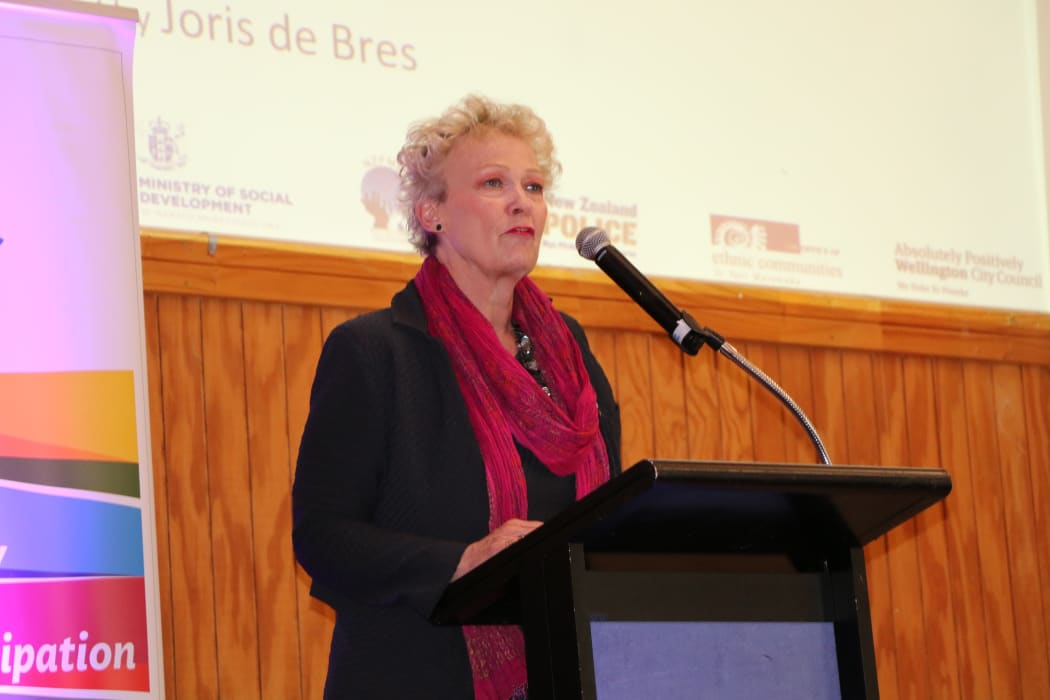
Candidate Nichola Young, diversity makes shopping interesting Photo: RNZ / Lynda Chanwai-Earle
But Tayo is yet to be convinced; "You try to be diplomatic and work around gatekeepers but to be honest, it's been frustrating because these are the people you go to. If they don't want their communities to be participating you can't do anything. My message; for the community to grow, to develop, the community leaders need to give the community opportunity to grow and try and engage with the mainstream. Without engaging with the mainstream we will continue to have little ethnic cities all over the place without really integrating."
